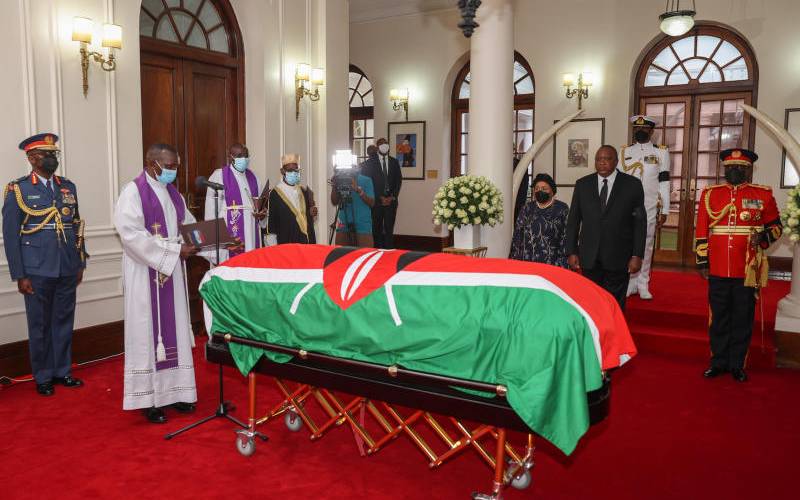×
The Standard e-Paper
Join Thousands Daily

The laying of Kenya’s Third President to rest in Nyeri today ends the life of an iconic leader and a week of remarkable tributes from all over the world.
As many identify themselves with his life, we must ask each other again whether we are preoccupied with the leader, his legacy, or the values his life leaves behind, for us to emulate. I was 11-years old when my mother Brenda Jones-Houghton was summarily deported with 24 hours-notice for writing an article on the succession of President Jomo Kenyatta.